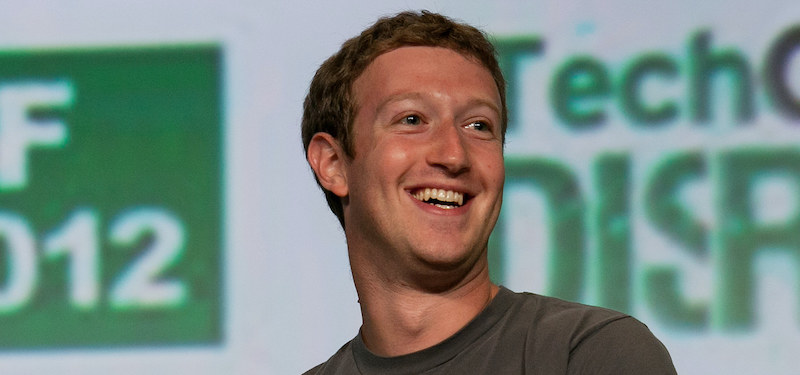Quality journalism and the Zuckerberg Manifesto

Platforms like Facebook’s Instant Articles format offer significant short-term benefits like faster loading times for consumers and unbeatable audience access for publishers. I’ve wondered before if the new medium offers a better deal for community journalism and local activism than it does for the mainstream media.
But where does the system of Instant Articles, Facebook’s quasi-ministry of information and priority news source of choice, fit in with founder Mark Zuckerberg’s newly stated desire to “help people build an informed community that exposes us to new ideas and builds common understanding in a world where every person has a voice?”
Full disclosure: I’m working on an app that simplifies the process of publishing news on Facebook. Called Plug.Direct, it offers freelance journalists, expert writers, activists and community media entry-level access to the Social Network’s computing power, underwritten by a quality score – a test of provenance and professionalism to help distinguish (not define) good reporting.
Facebook should be supporting more journalists and better journalism in similar ways, helping reporters to connect with communities online and off, by targeting audiences, personalising communication and offering proven accountability and in the process, challenge the ‘fake news’ phenomena on its network. “Giving everyone a voice has historically been a very positive force for public discourse because it increases the diversity of ideas shared, said Zuckerberg in his 5,000 word plus ‘manifesto’ released this week. “But the past year has also shown it may fragment our shared sense of reality.”
Zuckerberg’s post is worth reading in full, as Backchannel’s Steven Levy fairly noted, “both as a powerful and thoughtful individual’s attempt to grapple with a global ‘Winter is Coming’ moment and as a corporate strategy meant to link a company’s ambitions to a wider social movement that it portrays as a global benefit for all humanity.”
Other observers like Kara Swisher thought Zuckerberg’s manifesto was trying to distance Facebook from responsibility for fakery. “If I could wave a magic wand and get rid of all misinformation, I would,” he told her. “But people would still use some sets of facts, the true facts, in order to fit whatever bias they have.” In fact Zuckerberg picked out media ‘sensationalism’ as a bigger problem than ‘fake news’ per se, something that gave some observers pause.
Elsewhere Dean Pomerleau’s Fake News Challenge focuses on discrepancies between misleading headlines and the actual texts as a means to identifying ‘fake news’. Though the Challenge’s likely efficacy is disputed, Zuckerberg cites data suggesting that a lot of ‘fake news’ is shared over Facebook on the basis of the headline alone; that is without actually reading the article itself. His data suggests that articles that are read and then shared should be treated more respectfully by the Facebook news feed algorithm.
The idea that algorithms might provide a means of distinguishing truth from fiction on a story-by-story basis has been widely challenged. But it’s possible that despite the failures of the past, the Facebook algorithm could quite quickly tag industrial-scale fakery by tracking its sources and pre-emptively reducing their spread across the network. Twitter did something similar to restrain pro-ISIS tweets on its own network.
Plug.Direct’s provenance scores test author and article against 125 measures of good journalistic practice and accountability. It leaves digital ‘breadcrumb’ trails for algorithm-driven distributors like Facebook and Google’s own AMP platform to follow, and hopefully favour the works with higher rankings in news feeds. Steps to reduce a particular item’s prominence in Facebook and Google news feeds, rather than block it outright, would be a qualified answer to charges of censorship. But it’s hard to imagine Facebook over-regulating a service that thrives financially on sharing. And few things share faster or more profitably on Facebook than outrage, especially the made-to-measure kind.
Facebook’s revenue system depends solely on page views, writes Frédéric Filloux, an articulate critic of the network and its ‘walled wonderland’. Facebook doesn’t care about news in the journalism sense, he warns. “News represents about 10% of the average user newsfeed and news can be cut overnight if circumstances dictate with no significant impact for the platform.” But again, it’s hard to imagine Facebook living long on an exclusive diet of faux-outrage, no matter how profitable it was. Its corporate scale already makes it a favourite target for regulators and political agenda-setters. If Zuckerberg’s manifesto has a recurring theme, it is the desire to make Facebook lovable again.
“A strong news industry is also critical to building an informed community,” Zuckerberg wrote. “Giving people a voice is not enough without having people dedicated to uncovering new information and analysing it. There is more we must do to support the news industry to make sure this vital social function is sustainable – from growing local news, to developing formats best suited to mobile devices, to improving the range of business models news organisations rely on.”
These ‘business models’ are not risk-free. Commentator Anil Dash sees a subtle but critical pattern in the Facebook approach: A short-term improvement in user experience helping a single dominant tech company to take over a legacy market in the long term. He suspects Facebook and Google will only subsidise publishers’ access to new platform features until they become dependent – and alternative options have been pushed out of business. Time after time, he says, companies hosting open markets like Google, Amazon and Ebay give themselves unfair advantages that can’t be matched by others in the market.
Dash cites Uber as the perfect example of the breed. Investors cover billions in losses, while Uber squeezes out rivals, creates a huge unregulated monopoly, and long term, prepares to replace human drivers with their own robot cars. Being able to easily hail a cab or quickly read a story is a real benefit, Dash says. But Uber’s road to self-driving cabs will be a long one. What about self-driving news?
In time, writes Amy Webb for Mother Jones, “algorithms will analyse your online habits, personal data and communication preferences. They will then merge your information with current news, package it in the way most likely to grab your attention, and deliver it in a format optimised for you.”
Will an algorithm pick readers up and take them where they want to go? “We’ve already seen that a lot of news consumers aren’t interested in being safely and reliably delivered to accurate news, says Dash. But still it appeals to publishers. David Merrell, lead product manager at the Washington Post told Digiday’s Lucinda Southern that results have been “very lucrative,” thanks to Facebook’s detailed audience target data. The Post keeps revenue from ads sold directly by its staff, and keeps 70% of income sold on their behalf by Facebook’s Audience Network, which also sells on any leftover unsold Post ad inventory.
Facebook says Instant Articles are shared at a 15 percent higher rate than regular links posted to Facebook. They are faster and lighter too, and therefore cheaper for smartphone users on pay-as-you-go mobile tariffs – a vital new and rapidly expanding mass media audience in the developing world, where independent journalism is especially valued.
Meanwhile the deals on offer to publishers outside the Facebook walled garden are no better, and often a lot worse. So-called ‘programmatic’ advertising trades spaces on vastly complex automated auction sites in nano-seconds, to serve up ads to specific internet users based on the user’s browsing history. The Guardian found that up to 70p from every pound spent on programmatically placing ads on its website goes to middlemen in control of this tech. There’s little control over advert content. Premium brand ads have been tagged to racist and pornographic websites – at their expense – by undiscriminating computer code.
Fake news exists in a interdependent media ecosystem that uses Facebook to feed virality and programmatic ads to raise income that is hard to beat. The New York Times tracked down an ex-student in Maryland who faked a story about Hillary Clinton on a fake site called Christian Times Newspaper, promoted it with half a dozen fake Facebook pages, and saw it shared six million times online, earning him $5,000 from programmatic ads in a few days. A BuzzFeed analysis found that pro-Trump fake stories before the 2016 vote received more shares, reactions, and comments than the top election stories from 19 major news outlets combined.
Ironically perhaps, for the smaller publisher of quality Facebook’s audience building tools may be the only accessible and effective means of matching the performance of the fake news peddlers. Independent publishers can’t afford to buy into tools that match the detailed market analysis that Facebook and Google’s own tools routinely provides as part of their service to publishers. Even the critically-minded Filloux recognises that Facebook is above all a fantastic advertising machine. “I encourage everyone to explore its spectacular advertising interface and, even better, to spend a few bucks to boost a post, or build an ad. Its power, reach, granularity and overall efficiency are dizzying.”
True, Facebook likes to change its News Feed algorithm often and without notice to prevent people gaming the system, accommodate new styles of content, and of course to corral audiences into the “utterly segregated and fragmented groups” Filloux describes. Yet it works for advertisers and publications that want a way in and are happy to leave its algorithmic ‘black box’ to work its secret magic. El País managing editor David Alandete told Digiday’s Southern that connecting via Instant Articles allows them “to circumvent the algorithm and reach our audience directly”.
There’s plenty to be said about the shortcomings of Facebook’s approach to the challenges it swiftly creates but only slowly addresses. The Register was particularly tart about Zuckerberg’s manifesto and his “Technology Jesus moment”. “Extreme viewpoints will feel like the norm, not the outliers they actually are, warns Amy Webb. “And by the time we finally accept that our democratic internet is fatally hobbled by clever code, Big Data, and our own fallible instincts, it may be too late.”
GigaOm’s Mathew Ingram argues that publishers are getting a worse deal than Faust, who at least did his deal with the Devil for wealth and power.”Many media companies feel as though they have no choice but to cut a deal with Facebook, because they need the network’s reach and advertising revenue to survive.What they are giving up in return may not be their souls, but it’s close enough.”
But within the narrow parameters of publishing reach, Facebook Instants on mobile offers a clear option. Writes Dash: “There are fewer understandable tricks that publishers can use to ensure that readers will see their content, and publishing in the Instant Articles format is one of the few that’s known to work.”

